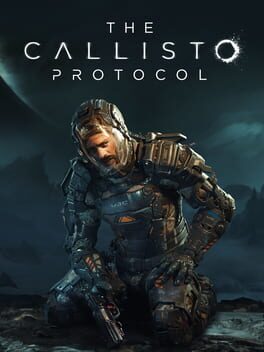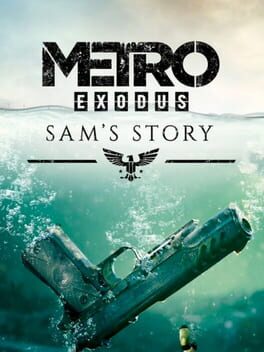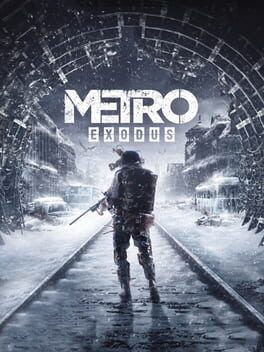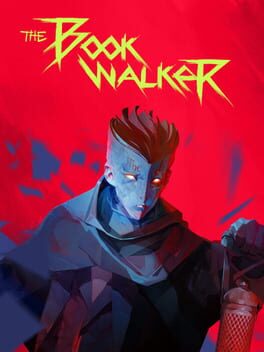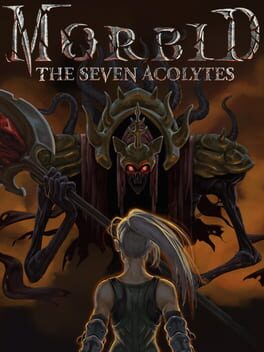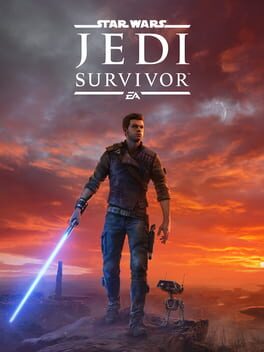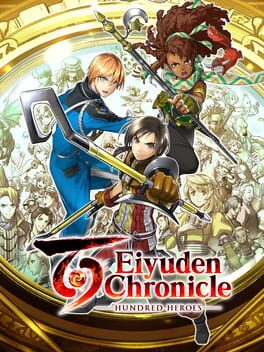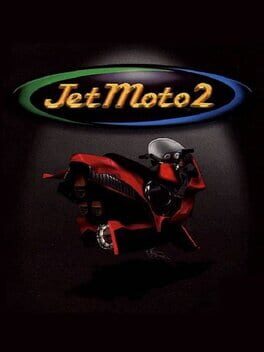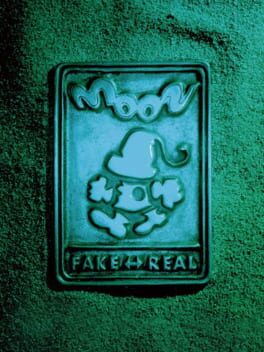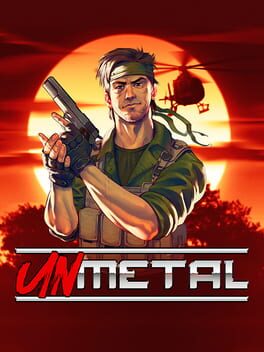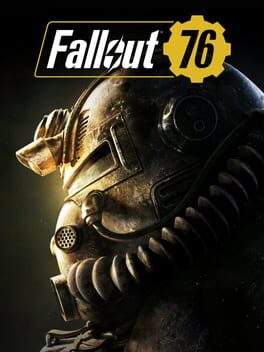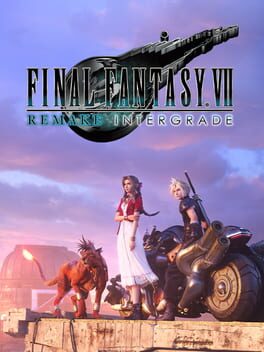Callisoto Protocol is a game that faced harsh criticism at launch, and it seems that sentiment remains unchanged among many critics. My experience with the game, however, was more balanced. I found it to be an okay game overall, with an average quality that doesn't offer any particularly unique elements. But yes, this truly is "We-Have-Dead-Space-At-Home" level of plagiarism, or at least an attempt to borrow all of the good things that made us love that title.
The combat system works adequately in one-on-one encounters but becomes problematic when facing groups of enemies. The boss fights are notably underwhelming, relying on repetitive mechanics. The primary strategy involves dodging left or right and then shooting, which quickly becomes tedious and detracts from the challenge and excitement one would expect from a boss encounter. Lastly, too many stealth levels.
The narrative had potential, but its execution was flawed by too many improbable events. The protagonist experiences numerous setbacks, such as walkways and bridges collapsing just before reaching the goal. These repetitive and predictable incidents eventually diminished my engagement with the story.
I accessed the game through a PS Plus membership, which made it a "cost-free" experience for me. I spent over 11 hours playing on the maximum difficulty setting, which included a lot of game over screens. A lot.
Callisto Protocol is worth playing if you have access to it at a steep discount. However, it's not compelling enough to justify purchasing anywhere near full price. The game is a mixed bag with some functional aspects but ultimately lacks innovation and has several design flaws that hinder its overall enjoyment.
The combat system works adequately in one-on-one encounters but becomes problematic when facing groups of enemies. The boss fights are notably underwhelming, relying on repetitive mechanics. The primary strategy involves dodging left or right and then shooting, which quickly becomes tedious and detracts from the challenge and excitement one would expect from a boss encounter. Lastly, too many stealth levels.
The narrative had potential, but its execution was flawed by too many improbable events. The protagonist experiences numerous setbacks, such as walkways and bridges collapsing just before reaching the goal. These repetitive and predictable incidents eventually diminished my engagement with the story.
I accessed the game through a PS Plus membership, which made it a "cost-free" experience for me. I spent over 11 hours playing on the maximum difficulty setting, which included a lot of game over screens. A lot.
Callisto Protocol is worth playing if you have access to it at a steep discount. However, it's not compelling enough to justify purchasing anywhere near full price. The game is a mixed bag with some functional aspects but ultimately lacks innovation and has several design flaws that hinder its overall enjoyment.
I dunno, man... I really hated this DLC. From the completely god-awful character of Sam, who comes across like a Russian pretending to be an American stuck in Russia before the bombs went off, to the poorly executed new enemy/boss—it's a neat idea on paper, but the execution leaves much to be desired. The support characters and cast are boring as f, adding nothing compelling to the story.
The "open area" in this DLC is somehow even worse than what we had in the base game of Exodus. It feels lifeless and uninspired, failing to capture the mystique and appeal of the Metro lore that shines so brightly within the confines of the Metro itself. The atmosphere and tension that make the series so unique are completely lost here.
There's very little to like in "Sam's Story." The charm and allure of the Metro universe vanish outside the Metro, and it really shows in this lackluster addition. I cannot recommend this one, even at a deep discount. Save your time and money for a more worthwhile experience.
The "open area" in this DLC is somehow even worse than what we had in the base game of Exodus. It feels lifeless and uninspired, failing to capture the mystique and appeal of the Metro lore that shines so brightly within the confines of the Metro itself. The atmosphere and tension that make the series so unique are completely lost here.
There's very little to like in "Sam's Story." The charm and allure of the Metro universe vanish outside the Metro, and it really shows in this lackluster addition. I cannot recommend this one, even at a deep discount. Save your time and money for a more worthwhile experience.
"The Two Colonels" DLC for Metro Exodus offers a refreshing change of pace, taking players back to the familiar confines of the Metro. This return to the series' roots is a welcome shift from the open-world elements of the base game, providing a more linear and intense experience.
One of the standout features of this DLC is the flamethrower, which quickly became one of my favorite FPS weapons of all time. The developers have done an excellent job of making it feel powerful and satisfying to use, making each encounter with the mutant hordes a thrilling experience.
The story, while short, is decent and engaging enough to keep you invested throughout. It's not a necessary addition to the overall narrative of Metro Exodus, but it provides a deeper look into the Metro universe and its characters. Despite its brevity, I found myself enjoying it more than the base game of Exodus, thanks to its focused storytelling and immersive atmosphere.
Overall, "The Two Colonels" is a solid addition to Metro lore, offering a nostalgic trip back to what made the series great, the Metro, complemented by the joy of wielding a flamethrower. If you're a fan of the series, this DLC is worth playing - if you are getting it on sale.
One of the standout features of this DLC is the flamethrower, which quickly became one of my favorite FPS weapons of all time. The developers have done an excellent job of making it feel powerful and satisfying to use, making each encounter with the mutant hordes a thrilling experience.
The story, while short, is decent and engaging enough to keep you invested throughout. It's not a necessary addition to the overall narrative of Metro Exodus, but it provides a deeper look into the Metro universe and its characters. Despite its brevity, I found myself enjoying it more than the base game of Exodus, thanks to its focused storytelling and immersive atmosphere.
Overall, "The Two Colonels" is a solid addition to Metro lore, offering a nostalgic trip back to what made the series great, the Metro, complemented by the joy of wielding a flamethrower. If you're a fan of the series, this DLC is worth playing - if you are getting it on sale.
2019
A Disappointing Finale to the Trilogy
Metro Exodus, the third installment in the Metro trilogy, had me eagerly anticipating significant growth and progression in both its story and gameplay. Unfortunately, it failed to meet those expectations. While I loved Metro 2033 and found Metro Last Light to be an enjoyable experience, this one fell short in many areas.
Having read Metro 2035, I was already familiar with some of the general plot outline. The game features a modified story, especially in the latter half, but it is told so blandly that it failed to captivate me. The narrative is plagued by characters talking over each other and excessive exposition, making it hard to stay engaged. While there were attempts to retain the gritty atmosphere of the first title, these efforts didn't resonate with me. By the end, I was largely indifferent to the outcome, only interested in seeing a possible closure to the arc.
Taking the game out of the confines of the metro should have opened up new possibilities, but it never truly felt that way. The open areas allowed for improved visuals, which was a nice change, but nothing mind-blowing. The game does an adequate job in this department, showing improvement from the PS3-era visuals of Metro 2033 and Last Light. The grittiness of the audio, especially the weaponry, was also well done.
However, the gameplay left much to be desired. It was largely the same as its predecessors, but with notable drawbacks. If PlayStation had a refund policy like Steam, I would have requested one immediately. Even at maximum sensitivity, the first-person camera moves at a snail's pace, which is inexcusable, especially after patches and a PS5 upgrade. This issue made the few intense firefights more frustrating than they needed to be, reminiscent of early dual thumbstick first-person controls.
The open areas felt bland and uninspired. The game follows the standard formula of finding points of interest and investigating them, but they often felt pointless. Discovering a monster den with no purpose beyond slaying a few mutants creates a monotonous gameplay loop, and there are far too many of these instances.
The crafting system added a bit of depth, but it wasn't fleshed out enough to maintain interest after the first area. The same goes for the gun mods. Perhaps if these were only found at points of interest instead of being obtainable from enemies, it would have added some excitement.
Overall, I am glad the Metro series exists, as you can never have enough post-apocalyptic nuclear games. However, if there is another installment, I believe it's time for a radically new direction. Metro Exodus had the potential to be a great game, but it ultimately fell short, leaving me disappointed.
Planning on playing through both DLCs since I bought them, and maybe find a gem hidden there.
Metro Exodus, the third installment in the Metro trilogy, had me eagerly anticipating significant growth and progression in both its story and gameplay. Unfortunately, it failed to meet those expectations. While I loved Metro 2033 and found Metro Last Light to be an enjoyable experience, this one fell short in many areas.
Having read Metro 2035, I was already familiar with some of the general plot outline. The game features a modified story, especially in the latter half, but it is told so blandly that it failed to captivate me. The narrative is plagued by characters talking over each other and excessive exposition, making it hard to stay engaged. While there were attempts to retain the gritty atmosphere of the first title, these efforts didn't resonate with me. By the end, I was largely indifferent to the outcome, only interested in seeing a possible closure to the arc.
Taking the game out of the confines of the metro should have opened up new possibilities, but it never truly felt that way. The open areas allowed for improved visuals, which was a nice change, but nothing mind-blowing. The game does an adequate job in this department, showing improvement from the PS3-era visuals of Metro 2033 and Last Light. The grittiness of the audio, especially the weaponry, was also well done.
However, the gameplay left much to be desired. It was largely the same as its predecessors, but with notable drawbacks. If PlayStation had a refund policy like Steam, I would have requested one immediately. Even at maximum sensitivity, the first-person camera moves at a snail's pace, which is inexcusable, especially after patches and a PS5 upgrade. This issue made the few intense firefights more frustrating than they needed to be, reminiscent of early dual thumbstick first-person controls.
The open areas felt bland and uninspired. The game follows the standard formula of finding points of interest and investigating them, but they often felt pointless. Discovering a monster den with no purpose beyond slaying a few mutants creates a monotonous gameplay loop, and there are far too many of these instances.
The crafting system added a bit of depth, but it wasn't fleshed out enough to maintain interest after the first area. The same goes for the gun mods. Perhaps if these were only found at points of interest instead of being obtainable from enemies, it would have added some excitement.
Overall, I am glad the Metro series exists, as you can never have enough post-apocalyptic nuclear games. However, if there is another installment, I believe it's time for a radically new direction. Metro Exodus had the potential to be a great game, but it ultimately fell short, leaving me disappointed.
Planning on playing through both DLCs since I bought them, and maybe find a gem hidden there.
I dove into Bookwalker: Thief of Tales without a clue, driven by two reasons: 1) it's about to vanish from Game Pass, and 2) the logo and splash art promised a cyberpunk adventure. Spoiler alert: it wasn’t cyberpunk or flashy. At all. But hey, that’s part of the fun, right?
From the get-go, the game intrigued me with its unique premise and world-building. Stepping into the shoes of a literary thief, I found myself navigating through different book worlds, each with its own charm and challenges. The narrative kept me interested (though it was a minimal affair, for the most part), even when the gameplay got a bit clunky.
Ah, the gameplay. If you love point-and-click adventures, you'll find this a quirky delight. However, some mechanics felt like they needed a bit more polish. There were moments of frustration, but also a lot of satisfaction once you got the hang of things. The character often paths in weird ways, especially when clicking on objects from the wrong side.
Turn based combat is also a thing. Yeah, not much to say about that...
Clocking in at a solid 7 hours, Bookwalker offers an engaging experience that’s worth your time. Judging by the low percentages of achievement winners (only 26% have even completed the first chapter!), it seems like many players started this game for the same reasons I did but didn’t stick around. Their loss!
It may not have been the cyberpunk escapade I expected, but it delivered a unique and enjoyable journey. If you’re looking for a game that’s a bit off the beaten path, give it a shot before it leaves Game Pass. You might just find yourself hooked on its charm.
From the get-go, the game intrigued me with its unique premise and world-building. Stepping into the shoes of a literary thief, I found myself navigating through different book worlds, each with its own charm and challenges. The narrative kept me interested (though it was a minimal affair, for the most part), even when the gameplay got a bit clunky.
Ah, the gameplay. If you love point-and-click adventures, you'll find this a quirky delight. However, some mechanics felt like they needed a bit more polish. There were moments of frustration, but also a lot of satisfaction once you got the hang of things. The character often paths in weird ways, especially when clicking on objects from the wrong side.
Turn based combat is also a thing. Yeah, not much to say about that...
Clocking in at a solid 7 hours, Bookwalker offers an engaging experience that’s worth your time. Judging by the low percentages of achievement winners (only 26% have even completed the first chapter!), it seems like many players started this game for the same reasons I did but didn’t stick around. Their loss!
It may not have been the cyberpunk escapade I expected, but it delivered a unique and enjoyable journey. If you’re looking for a game that’s a bit off the beaten path, give it a shot before it leaves Game Pass. You might just find yourself hooked on its charm.
NieR Replicant offers a captivating and emotionally resonant experience, with its richly developed characters, engaging combat, and intriguing world lore. However, the game is not without its flaws, as repetitive elements, tedious mechanics, and a decline in side quest quality can detract from the overall enjoyment. Despite these shortcomings, NieR Replicant remains a worthwhile adventure for fans of the genre, offering a journey filled with memorable moments and thought-provoking storytelling.
I thoroughly enjoyed my 40 hours finally diving into the wild whacky Yoko Taro world, and cannot wait to go head first into my next.
Pros:
Captivating Characters and Interactions: The characters in NieR Replicant are richly developed, each with their own distinct personalities and backstories. Their interactions feel genuine and often emotionally resonant, drawing players deeper into the game's world. Kaine's foul-mouthed demeanor adds a refreshing authenticity, making her stand out as a particularly memorable character whose depth goes beyond mere shock value.
Fluid and Punchy Combat: NieR Replicant's combat system is a true highlight, blending fast-paced action with a satisfying sense of impact. As the protagonist grows stronger throughout the game, so too does their combat prowess, leading to dynamic and engaging encounters that keep players on their toes.
Intriguing World Lore: From the enigmatic mysteries of the Gestalts and Replicants to the hauntingly beautiful landscapes of the game world, NieR Replicant's lore is a tapestry of intricacies waiting to be unraveled. While initially obscure, the gradual revelation of lore elements adds layers of depth and intrigue, leaving players eager to uncover more about the world they inhabit.
Exquisite Music: Few games can match the emotional resonance of NieR Replicant's soundtrack. Composed by the legendary Keiichi Okabe, the music perfectly complements the game's atmosphere, evoking a wide range of emotions from melancholy to triumph. Each track is a masterpiece in its own right, enhancing every moment of the player's journey.
Engaging Side Quests in the First Half: Side quests in NieR Replicant aren't mere distractions; they're integral parts of the storytelling experience. In the first half of the game, these quests not only provide valuable insights into the lives of NPCs but also contribute to the overall world-building and character development.
Multiple Endings: NieR Replicant's multiple endings offer a tantalizing incentive for replayability, encouraging players to explore different narrative paths and discover new layers of the story. Each ending provides a fresh perspective on the events of the game, rewarding those willing to invest the time and effort to uncover them.
Cons:
Repetitive Grinding to Achieve the Endings: While the multiple endings add depth to the game's narrative, the process of unlocking them can feel needlessly repetitive. Players are required to replay significant portions of the game multiple times, often with only minor variations in content. This can lead to a sense of tedium and frustration, detracting from the overall enjoyment of the experience.
Tedious Weapon Upgrades: Upgrading weapons in NieR Replicant can be a grindy and time-consuming process. Despite investing significant hours into the game, players may find themselves lacking the necessary materials to fully upgrade their arsenal. This imbalance between effort and reward can diminish the sense of progression and satisfaction in gameplay. Luckily they are completely not needed, as even at base power you can find strong enough weapons to complete the entire game.
Limited Weapon Variety: Despite the game boasting a wide array of weapons, the lack of incentive to experiment with different options can result in players sticking to a select few throughout their playthrough. The dominance of certain powerful weapons reduces the diversity of playstyles and undermines the potential for strategic depth in combat encounters.
Decline in Side Quest Quality: While the side quests in the first half of the game are engaging and meaningful, those in the latter half often feel like filler content. The decline in quality and narrative significance can lead to a sense of disappointment for players expecting the same level of depth and immersion throughout their entire journey.
Perfect it may not be, but worthy of "must play" status it absolutely is.
I thoroughly enjoyed my 40 hours finally diving into the wild whacky Yoko Taro world, and cannot wait to go head first into my next.
Pros:
Captivating Characters and Interactions: The characters in NieR Replicant are richly developed, each with their own distinct personalities and backstories. Their interactions feel genuine and often emotionally resonant, drawing players deeper into the game's world. Kaine's foul-mouthed demeanor adds a refreshing authenticity, making her stand out as a particularly memorable character whose depth goes beyond mere shock value.
Fluid and Punchy Combat: NieR Replicant's combat system is a true highlight, blending fast-paced action with a satisfying sense of impact. As the protagonist grows stronger throughout the game, so too does their combat prowess, leading to dynamic and engaging encounters that keep players on their toes.
Intriguing World Lore: From the enigmatic mysteries of the Gestalts and Replicants to the hauntingly beautiful landscapes of the game world, NieR Replicant's lore is a tapestry of intricacies waiting to be unraveled. While initially obscure, the gradual revelation of lore elements adds layers of depth and intrigue, leaving players eager to uncover more about the world they inhabit.
Exquisite Music: Few games can match the emotional resonance of NieR Replicant's soundtrack. Composed by the legendary Keiichi Okabe, the music perfectly complements the game's atmosphere, evoking a wide range of emotions from melancholy to triumph. Each track is a masterpiece in its own right, enhancing every moment of the player's journey.
Engaging Side Quests in the First Half: Side quests in NieR Replicant aren't mere distractions; they're integral parts of the storytelling experience. In the first half of the game, these quests not only provide valuable insights into the lives of NPCs but also contribute to the overall world-building and character development.
Multiple Endings: NieR Replicant's multiple endings offer a tantalizing incentive for replayability, encouraging players to explore different narrative paths and discover new layers of the story. Each ending provides a fresh perspective on the events of the game, rewarding those willing to invest the time and effort to uncover them.
Cons:
Repetitive Grinding to Achieve the Endings: While the multiple endings add depth to the game's narrative, the process of unlocking them can feel needlessly repetitive. Players are required to replay significant portions of the game multiple times, often with only minor variations in content. This can lead to a sense of tedium and frustration, detracting from the overall enjoyment of the experience.
Tedious Weapon Upgrades: Upgrading weapons in NieR Replicant can be a grindy and time-consuming process. Despite investing significant hours into the game, players may find themselves lacking the necessary materials to fully upgrade their arsenal. This imbalance between effort and reward can diminish the sense of progression and satisfaction in gameplay. Luckily they are completely not needed, as even at base power you can find strong enough weapons to complete the entire game.
Limited Weapon Variety: Despite the game boasting a wide array of weapons, the lack of incentive to experiment with different options can result in players sticking to a select few throughout their playthrough. The dominance of certain powerful weapons reduces the diversity of playstyles and undermines the potential for strategic depth in combat encounters.
Decline in Side Quest Quality: While the side quests in the first half of the game are engaging and meaningful, those in the latter half often feel like filler content. The decline in quality and narrative significance can lead to a sense of disappointment for players expecting the same level of depth and immersion throughout their entire journey.
Perfect it may not be, but worthy of "must play" status it absolutely is.
A Lighter Shade of Souls
Morbid: The Seven Acolytes scratches the itch for a souls-like experience, but ditches the punishing difficulty. Developer admissions solidify this - it's not a true soulslike, but a more accessible adventure.
Familiar Horrors
The game embraces H.P. Lovecraft's influence with environments that ooze dread. Fishing villages and industrial cities become equally unsettling under Morbid's dark filter. Hunting down the seven titular Acolytes becomes your central quest, a simple yet functional premise. While the story itself fails to leave a lasting impression, the atmosphere effectively sets the stage.
Standard Combat without a Twist
Isometric combat feels familiar, offering the expected hack-and-slash experience. Character progression comes through blessings (think stat boosts) and skill points, a system that gets the job done without innovation. Weapon choices fall into familiar categories – bigger weapons for bigger damage, slower swings for heavier blows. Here's where the isometric perspective becomes a drawback. Many enemies and bosses rely on easily dodged horizontal attacks, making most encounters a breeze.
A Fun Detour, Not a Destination
While Morbid offers a solid 10 hours of entertainment, it lacks the ingenuity to truly stand out in the crowded genre. The overpowered consumables feel like a cheat code rather than a strategic element. Overall, it's a fun diversion, but forgettable.
The sequel, however, seems to address some shortcomings. If the changes are significant, I might be tempted to grab it... but only on a deep sale.
Morbid: The Seven Acolytes scratches the itch for a souls-like experience, but ditches the punishing difficulty. Developer admissions solidify this - it's not a true soulslike, but a more accessible adventure.
Familiar Horrors
The game embraces H.P. Lovecraft's influence with environments that ooze dread. Fishing villages and industrial cities become equally unsettling under Morbid's dark filter. Hunting down the seven titular Acolytes becomes your central quest, a simple yet functional premise. While the story itself fails to leave a lasting impression, the atmosphere effectively sets the stage.
Standard Combat without a Twist
Isometric combat feels familiar, offering the expected hack-and-slash experience. Character progression comes through blessings (think stat boosts) and skill points, a system that gets the job done without innovation. Weapon choices fall into familiar categories – bigger weapons for bigger damage, slower swings for heavier blows. Here's where the isometric perspective becomes a drawback. Many enemies and bosses rely on easily dodged horizontal attacks, making most encounters a breeze.
A Fun Detour, Not a Destination
While Morbid offers a solid 10 hours of entertainment, it lacks the ingenuity to truly stand out in the crowded genre. The overpowered consumables feel like a cheat code rather than a strategic element. Overall, it's a fun diversion, but forgettable.
The sequel, however, seems to address some shortcomings. If the changes are significant, I might be tempted to grab it... but only on a deep sale.
Eiyuden Hundred Heroes is a game crafted with love and passion by early genre pioneers, reflecting their expertise in storytelling and character development. While it isn't perfect, it offers a mostly enjoyable experience and worth playing for fans of the genre.
Nostalgia plays a significant role in the game, balancing old-school elements with modern expectations. While some 90s and 2000s mechanics may feel outdated, the developers' commitment to their vision deserves credit.
The game's strengths lie in its world-building and graphics. The HD-2D visuals are stunning, with detailed backgrounds and impressive effects. The storyline, focused on empires, rebellions, and political intrigue, unfolds believably and avoids gratuitous twists.
Characters are another highlight, with strong voice acting and engaging personalities. However, the large cast can lead to some characters fading into the background post-recruitment. I always want more of certain characters and less of others, but that's the way the wheel spins when you have over 100 characters in your troop.
A major issue for me is the game's unbalanced experience. Combat difficulty spikes early but becomes routine later. The turn-based system, while nostalgic, can feel tedious, although the auto-battle feature helps. The inability to grind beyond a point and random battles offering little reward are also drawbacks.
Pacing problems emerge about a quarter in, making the game feel slow and aimless. However, I found for myself that playing on handheld devices can alleviate some of this frustration with multitasking. The music, mini-games, and base-building mechanics are adequate but not exceptional.
Overall, I'm glad I backed this project despite some mixed feelings. As a fan of JRPGs, supporting pioneers in the genre is important. I look forward to their next title, hoping they learn from Hundred Heroes and Rising to create something truly special.
[Footnote: I did not address the English localization controversy, as it seemed rooted in bigotry and did not impact my experience during 70+ hours of gameplay.]
Nostalgia plays a significant role in the game, balancing old-school elements with modern expectations. While some 90s and 2000s mechanics may feel outdated, the developers' commitment to their vision deserves credit.
The game's strengths lie in its world-building and graphics. The HD-2D visuals are stunning, with detailed backgrounds and impressive effects. The storyline, focused on empires, rebellions, and political intrigue, unfolds believably and avoids gratuitous twists.
Characters are another highlight, with strong voice acting and engaging personalities. However, the large cast can lead to some characters fading into the background post-recruitment. I always want more of certain characters and less of others, but that's the way the wheel spins when you have over 100 characters in your troop.
A major issue for me is the game's unbalanced experience. Combat difficulty spikes early but becomes routine later. The turn-based system, while nostalgic, can feel tedious, although the auto-battle feature helps. The inability to grind beyond a point and random battles offering little reward are also drawbacks.
Pacing problems emerge about a quarter in, making the game feel slow and aimless. However, I found for myself that playing on handheld devices can alleviate some of this frustration with multitasking. The music, mini-games, and base-building mechanics are adequate but not exceptional.
Overall, I'm glad I backed this project despite some mixed feelings. As a fan of JRPGs, supporting pioneers in the genre is important. I look forward to their next title, hoping they learn from Hundred Heroes and Rising to create something truly special.
[Footnote: I did not address the English localization controversy, as it seemed rooted in bigotry and did not impact my experience during 70+ hours of gameplay.]
Writing this review is bittersweet for me, as I'm a die-hard fan of the Final Fantasy series. Final Fantasy VII on the original PlayStation was a pivotal game that shaped my gaming journey, introducing me to a genre I've never looked back from. Witnessing its Remake (and now its Rebirth as part 2 of 3) triggered a profound reaction in me, making it the remake I've longed for the most.
That said, Final Fantasy VII: Rebirth has left me conflicted. While it boasts moments of soaring highs, it also descends into valleys of significant lows. I'll refrain from delving into the story, as its impact is highly subjective and I believe the game is worth experiencing for oneself. Is it perfect? No, but it continues to explore unique themes and twist tropes in refreshing ways that I hope will be further explored.
Approaching this review after completing a blind run through the main game, my perspective might evolve if, and it's a big if, I manage to achieve 100% completion. However, at this point, I don't foresee the desire to grind out the rest.
The combat feels refined from the remake, yet it still suffers from frustrating moments. The blend of action RPG with a turn-based system is starting to show its age, and while the stagger system may be the best version of it, it's evident that it's been utilized across multiple games. However, I appreciate the introduction of new character combos (synergy) that add flair and satisfaction, especially when finishing off enemies.
Truthfully I might just not be good at this version of action RPG. Some battles proved exceedingly frustrating, surpassing the challenges of even the most daunting encounters in Souls-like games. There seems to be a lack of action cancelling or sufficient invincibility frames, though I can't pinpoint the exact issue. It's possible my age is catching up with me!
The last open-world Final Fantasy, XV, received mixed reviews for its lackluster implementation. However, Final Fantasy VII: Rebirth manages to both shine and falter in its open-world design. The side quests are exceptional, building upon the success of meaningful story additions seen in previous titles. With over twenty side quests, each offering unique player interactions, the game avoids common MMO-trope requirements, providing a refreshing experience.
Each area feels meticulously crafted, offering familiar yet fresh vistas. However, some areas are cumbersome to navigate due to the absence of a jump button or limited climbing options. Despite this, the variety of activities in each area, from relic hunting to unique monster slaying, ensures engagement without overwhelming the player.
Character growth undergoes slight changes with the addition of "folios" for each character, although this doesn't significantly deviate from previous systems. Weapon leveling follows a flat scale, which, while forgettable for the most part, adds some depth to customization. Materia makes a return with minor tweaks, with the enemy skill materia standing out as particularly noteworthy as well as some new support materia combos that do aid the party in their battles.
Overall, Final Fantasy VII: Rebirth is a solid game, though it falls short of securing a place among my most cherished gaming experiences in the series. However, it's possible that a more complete picture will emerge with the release of the entire arc of the remake. With the anticipated release of the third installment in 2027, despite my reservations with Rebirth, I eagerly await Resurrection... or Revival... or Regeneration. Yeah, my money's on Regeneration.
That said, Final Fantasy VII: Rebirth has left me conflicted. While it boasts moments of soaring highs, it also descends into valleys of significant lows. I'll refrain from delving into the story, as its impact is highly subjective and I believe the game is worth experiencing for oneself. Is it perfect? No, but it continues to explore unique themes and twist tropes in refreshing ways that I hope will be further explored.
Approaching this review after completing a blind run through the main game, my perspective might evolve if, and it's a big if, I manage to achieve 100% completion. However, at this point, I don't foresee the desire to grind out the rest.
The combat feels refined from the remake, yet it still suffers from frustrating moments. The blend of action RPG with a turn-based system is starting to show its age, and while the stagger system may be the best version of it, it's evident that it's been utilized across multiple games. However, I appreciate the introduction of new character combos (synergy) that add flair and satisfaction, especially when finishing off enemies.
Truthfully I might just not be good at this version of action RPG. Some battles proved exceedingly frustrating, surpassing the challenges of even the most daunting encounters in Souls-like games. There seems to be a lack of action cancelling or sufficient invincibility frames, though I can't pinpoint the exact issue. It's possible my age is catching up with me!
The last open-world Final Fantasy, XV, received mixed reviews for its lackluster implementation. However, Final Fantasy VII: Rebirth manages to both shine and falter in its open-world design. The side quests are exceptional, building upon the success of meaningful story additions seen in previous titles. With over twenty side quests, each offering unique player interactions, the game avoids common MMO-trope requirements, providing a refreshing experience.
Each area feels meticulously crafted, offering familiar yet fresh vistas. However, some areas are cumbersome to navigate due to the absence of a jump button or limited climbing options. Despite this, the variety of activities in each area, from relic hunting to unique monster slaying, ensures engagement without overwhelming the player.
Character growth undergoes slight changes with the addition of "folios" for each character, although this doesn't significantly deviate from previous systems. Weapon leveling follows a flat scale, which, while forgettable for the most part, adds some depth to customization. Materia makes a return with minor tweaks, with the enemy skill materia standing out as particularly noteworthy as well as some new support materia combos that do aid the party in their battles.
Overall, Final Fantasy VII: Rebirth is a solid game, though it falls short of securing a place among my most cherished gaming experiences in the series. However, it's possible that a more complete picture will emerge with the release of the entire arc of the remake. With the anticipated release of the third installment in 2027, despite my reservations with Rebirth, I eagerly await Resurrection... or Revival... or Regeneration. Yeah, my money's on Regeneration.
2024
Growing up without Nintendo consoles, my childhood racing adventures revolved around titles like Twisted Metal, Gran Turismo, and Jet Moto. For me, replaying Jet Moto 2 in 2024 was a replay of a cherished piece of nostalgia that holds a special place in my heart. But does this sequel stand the test of time? Unfortunately, not quite.
Pros:
Killer Soundtrack: The adrenaline-pumping soundtrack of Jet Moto 2 is a true standout. It perfectly complements the high-speed action and adds an extra layer of excitement to every race.
Neat Course Designs, Especially with the Grapple: The course designs in Jet Moto 2 are imaginative and varied. The addition of the grapple mechanic adds depth to the gameplay, offering new strategic possibilities and enhancing the overall experience.
Cons:
Plays More Like a Resource Manager Than a Racing Game at Times: One of the major drawbacks of Jet Moto 2 is that it occasionally feels more like a resource management game than a pure racing experience. Balancing your bike's turbo and understanding that it's use is just to get you back up to speed quickly vs a true speed boost is key to your racing success. Doesn't always translate to an enjoyable time.
Characters Aren't Diverse Enough to Bother Switching Beyond Necessity: While the game features a selection of characters, their differences are minimal, and there's little incentive to switch between them beyond fulfilling specific requirements.
Not Enough Replayability: Despite its initial charm, Jet Moto 2 lacks the replayability factor. Once you've conquered the tracks and mastered the mechanics, there's little motivation to return for more. Sadly the days of couch co-op are gone and without any online multiplayer the game quickly becomes dry.
Early Maps Are About Raw Power, Later Maps Are About Just Staying on the Bike: The difficulty curve in Jet Moto 2 feels unbalanced. Early maps prioritize raw power, while later maps become frustratingly focused on simply staying on the bike, leading to a less enjoyable experience. You really have to switch characters around or you'll be left in the dust.
In conclusion, while my replay of Jet Moto 2 didn't induce outright hatred, the clash between nostalgia and reality was palpable. The game's killer soundtrack and imaginative course designs offer glimpses of its former glory, but ultimately, its flaws prevent it from standing tall among modern racing titles. If you're seeking a trip down memory lane, Jet Moto 2 may provide some fleeting moments of joy. However, for those looking for a truly satisfying racing experience, it may be best to explore newer alternatives.
What other game do you know of that features the Two-Time Back to Back Blockbuster World Champion DrDisrespect?
Pros:
Killer Soundtrack: The adrenaline-pumping soundtrack of Jet Moto 2 is a true standout. It perfectly complements the high-speed action and adds an extra layer of excitement to every race.
Neat Course Designs, Especially with the Grapple: The course designs in Jet Moto 2 are imaginative and varied. The addition of the grapple mechanic adds depth to the gameplay, offering new strategic possibilities and enhancing the overall experience.
Cons:
Plays More Like a Resource Manager Than a Racing Game at Times: One of the major drawbacks of Jet Moto 2 is that it occasionally feels more like a resource management game than a pure racing experience. Balancing your bike's turbo and understanding that it's use is just to get you back up to speed quickly vs a true speed boost is key to your racing success. Doesn't always translate to an enjoyable time.
Characters Aren't Diverse Enough to Bother Switching Beyond Necessity: While the game features a selection of characters, their differences are minimal, and there's little incentive to switch between them beyond fulfilling specific requirements.
Not Enough Replayability: Despite its initial charm, Jet Moto 2 lacks the replayability factor. Once you've conquered the tracks and mastered the mechanics, there's little motivation to return for more. Sadly the days of couch co-op are gone and without any online multiplayer the game quickly becomes dry.
Early Maps Are About Raw Power, Later Maps Are About Just Staying on the Bike: The difficulty curve in Jet Moto 2 feels unbalanced. Early maps prioritize raw power, while later maps become frustratingly focused on simply staying on the bike, leading to a less enjoyable experience. You really have to switch characters around or you'll be left in the dust.
In conclusion, while my replay of Jet Moto 2 didn't induce outright hatred, the clash between nostalgia and reality was palpable. The game's killer soundtrack and imaginative course designs offer glimpses of its former glory, but ultimately, its flaws prevent it from standing tall among modern racing titles. If you're seeking a trip down memory lane, Jet Moto 2 may provide some fleeting moments of joy. However, for those looking for a truly satisfying racing experience, it may be best to explore newer alternatives.
What other game do you know of that features the Two-Time Back to Back Blockbuster World Champion DrDisrespect?
2019
"Hey! Stop playing that game and go to bed!"
Moon RPG Remix is a delightful departure from traditional RPGs, offering a fresh and innovative experience that sets it apart from the crowd. With its charming story, unconventional gameplay mechanics, and adorable visuals, it's a gem worth exploring on the Nintendo Switch. After playing it in its entirety, I can understand how this was the basis for games to come later, like Undertale.
One of the standout features of Moon RPG Remix is its cute story. Set in a whimsical world filled with colorful characters and quirky dialogue, the game immerses players in a charming narrative that's as heartwarming as it is entertaining. The new English translation is fantastic, and you can tell Onion Games allowed the translator lots of freedom to go wild - it shows, and it works so well for this game.
What truly sets Moon RPG Remix apart is its anti-RPG elements. Instead of following the usual conventions of the genre, the game takes a different approach, offering players something entirely new and unexpected. This unique twist on familiar tropes ensures that every moment spent in the game feels fresh and exciting. And who doesn't want to be the REAL good guy for once? The experience is unlike anything else on the market. From its innovative gameplay mechanics to its charming presentation, every aspect of the game feels meticulously crafted to deliver a truly unique and memorable experience.
Another refreshing change in Moon RPG Remix is its take on monster catching. Instead of simply battling and capturing creatures, players must approach the task in a different way, adding an extra layer of depth and strategy to the gameplay. However, some of the catching requirements for certain monsters and side quests may feel tedious at times, potentially slowing down the pacing for some players.
With a playtime of 15-20 hours, Moon RPG Remix strikes a perfect balance between length and content. It offers enough substance to keep players engaged without overstaying its welcome, making it an ideal choice for gamers looking for a satisfying yet manageable experience.
However, it's worth noting that Moon RPG Remix does have its challenges. The steep difficulty curve at the beginning may deter some players, but those who stick with it will find a rewarding and fulfilling journey ahead. Additionally, the game can be difficult to navigate without a guide, and finding a concise resource can be a bit of a challenge.
Overall, Moon RPG Remix is a charming and inventive adventure that offers a refreshing take on the RPG genre. With its cute story, unique gameplay mechanics, and delightful presentation, it's a must-play for anyone looking for something different on the Nintendo Switch.
Now go get all that L-O-V-E!
Moon RPG Remix is a delightful departure from traditional RPGs, offering a fresh and innovative experience that sets it apart from the crowd. With its charming story, unconventional gameplay mechanics, and adorable visuals, it's a gem worth exploring on the Nintendo Switch. After playing it in its entirety, I can understand how this was the basis for games to come later, like Undertale.
One of the standout features of Moon RPG Remix is its cute story. Set in a whimsical world filled with colorful characters and quirky dialogue, the game immerses players in a charming narrative that's as heartwarming as it is entertaining. The new English translation is fantastic, and you can tell Onion Games allowed the translator lots of freedom to go wild - it shows, and it works so well for this game.
What truly sets Moon RPG Remix apart is its anti-RPG elements. Instead of following the usual conventions of the genre, the game takes a different approach, offering players something entirely new and unexpected. This unique twist on familiar tropes ensures that every moment spent in the game feels fresh and exciting. And who doesn't want to be the REAL good guy for once? The experience is unlike anything else on the market. From its innovative gameplay mechanics to its charming presentation, every aspect of the game feels meticulously crafted to deliver a truly unique and memorable experience.
Another refreshing change in Moon RPG Remix is its take on monster catching. Instead of simply battling and capturing creatures, players must approach the task in a different way, adding an extra layer of depth and strategy to the gameplay. However, some of the catching requirements for certain monsters and side quests may feel tedious at times, potentially slowing down the pacing for some players.
With a playtime of 15-20 hours, Moon RPG Remix strikes a perfect balance between length and content. It offers enough substance to keep players engaged without overstaying its welcome, making it an ideal choice for gamers looking for a satisfying yet manageable experience.
However, it's worth noting that Moon RPG Remix does have its challenges. The steep difficulty curve at the beginning may deter some players, but those who stick with it will find a rewarding and fulfilling journey ahead. Additionally, the game can be difficult to navigate without a guide, and finding a concise resource can be a bit of a challenge.
Overall, Moon RPG Remix is a charming and inventive adventure that offers a refreshing take on the RPG genre. With its cute story, unique gameplay mechanics, and delightful presentation, it's a must-play for anyone looking for something different on the Nintendo Switch.
Now go get all that L-O-V-E!
2021
2018
War. War Never Changes... but it can be patched!
[I dropped the score a full point because of constant PS5 crashes. It's no exaggeration to say I probably experienced 50-70 crashes over 150 hours. It's a talked about issue but Bethesda claims it doesn't exist. It says something that I kept booting the game after each crash...]
Fallout 76 is a game about civilization picking back up after nuclear war ravages the world. It's about not giving up in the face of certain defeat and destruction, and about the resilience of humankind.
Fallout 76's development, unfortunately, followed the same path. I remember pre-ordering the collector's edition way back when the game was first announced, being so very excited - finally, a Fallout game that can be played online with friends! That has the same level of enjoyment and world-building we've seen from the series in previous entries, but this time online!
Only... that wasn't the case. There was a closed beta for those who pre-ordered a few months (maybe it was weeks?) before release, and I cannot really describe how gut-wrenching that beta felt, how devastated I was on how little this game resembled a Fallout title. From the lack of NPCs (Really, who thought gamers wanted to talk to computers to get quests for 40-60hrs? Where's the roleplaying element in that?) to some of the worst bugs and glitches seen pre-Cyberpunk 2077.
I did what any responsible gamer does after an experience like that and canceled my preorder.
So fast forward 5 years later, and I decided to give it a shot. Probably got it free from PS+ or something and wow, what a difference! The changes they've made and the work put in by Bethesda Game Studios really do show. It may not be a totally new game, but it immediately at least felt like a Fallout. NPCs greet you the moment you leave the opening vault, giving life to the Wasteland from the start. Such a change from before.
The story picks up with a pretty standard Fallout narrative by now, having you wander the Wasteland of Appalachia looking for your son, no your dad, oh wait, no your overseer! It takes a slight twist in that this time you aren't the only one out there. Your fellow players are engaging in the same quest, to find the overseer. This should add to the overall story arc, but sadly isn't referenced enough, or even used.
Imagine how different this experience would be with things like dungeons requiring teams as part of the main story. Sure, you can have friends join the team leader on their quests, but that's not the same thing you'd find in, say, FFXIV and its main story. FO76 doesn't have any needed player interaction throughout the entirety of the game. Truly it's not until the endgame and the events that take place server-wide that you are in more of a forced PvE type situation.
The gameplay feels good, though, probably the best shooting seen in a Fallout title yet. At first, VATS feels... off. It's no longer slow-mo like in Fallout 4 or stop time like 3 and New Vegas. It's fully real-time now and, once you get over the difference, makes the combat feel just so smooth. It's basically auto-aim on a meter, and I don't know how I can go back to the old school versions again. Battles can get very frantic, especially in the middle to late game where you don't yet have a fully realized build but are still fighting "end game" enemies.
When it comes to character building and leveling, again I think Fallout 76 hits the mark very well. Rather than any starting SPECIAL allocation or perk points, you start fresh with 0 in all SPECIAL and 0 perk cards. Every level up from 1-50 sees you adding 1 SPECIAL point, allowing you to slowly build out your stats. In addition, you get a perk pack, which is a 4 card perk pack that are allotted to SPECIAL stats. Those perks are standard fallout fare, and they are how you further build your character. Some are great, some are average, and some sadly you will have no room for in any given build.
The idea here is that you can build your character as you play, finding how you want to play, and change it (after level 20) if you don't - with nearly no downside. You continue to get perk cards past level 50, so you truly can respec as you go and try different builds with no penalty. This works for much of the game, up until reaching end game when it's more than just your given SPECIAL and perk cards you would change for a build.
Appalachia is great, also one of the better Fallout worlds with many different sites and locales to see. I just wish there was more of a reason to explore. The change to Bobbleheads (1hr buff vs. permanent stat boost, and they are more random now) and the Legendary weapon affixes we saw in Fallout 4 vs. finding powerful versions of weapons as seen in Fallout 3/NV means there are a lot of locations that, unless you have a quest or a daily mission, really don't serve much of a purpose. A real shame. Still though, a fun map to explore and trek. Especially with the threat of nukes from other players. Very cool mechanic!
FO76 still has some glaring issues, many of which don't appear until end game. One of which is inventory and space. 76 storage allocation is by weight and not total item count, which makes sense on the player and enemies, but doesn't really track in your base, and it doesn't really make sense from a server-load sense either. 20 power armor outfits or 250,000 items of junk? You will run out of space in your storage, and it will happen faster than you probably think.
There is a premium subscription you can get that gives you a scrap and ammo box with unlimited storage. At 14.99 this is worth every penny, as you also get some premium currency every month that you resub. Additionally, you get a handy survival tent that you can drop anywhere in the world, which is a godsend when you've finished an event and are massively over encumbered. Still though, even with these amenities, inventory management is a real pain late game.
The weird limits on daily play really drag the experience down too. Your end game loop is kind of standard gambling/item creation. Collect garbage legendary loot to scrap for material to try and craft better gear. You know, the one that we've been doing for a while because it scratches that primordial experience that "Surely, this TIME I'll get lucky!" The whole reason people buy lottery tickets despite unfathomably bad odds. But with that daily limit, there are events that give you enough loot to cap out, in less than 10 minutes. It's really unfortunate because it goes against the loop and can discourage playing, even when you really want to.
There are fun events to be had with others, some world boss encounters, daily instance operations (think run to objective, kill horde, run to next, rinse and repeat) and some DLC off-world map expeditions that are fun... once. If you like the settlement building/Sims aspect in FO4, you'll probably really enjoy it in FO76. Lots of plans to collect to make new stuff at your base.
All in all, I thoroughly enjoyed my time playing this live service title. However, I can't help but wish there was more substance to it. It leaves you wondering what the game could have become if it had launched in a more polished state, allowing Bethesda Game Studios to focus on enhancing it over five years instead of just fixing it. While it's still worth playing in 2024, don't expect the same daily engagement typical of a live service model.
[I dropped the score a full point because of constant PS5 crashes. It's no exaggeration to say I probably experienced 50-70 crashes over 150 hours. It's a talked about issue but Bethesda claims it doesn't exist. It says something that I kept booting the game after each crash...]
Fallout 76 is a game about civilization picking back up after nuclear war ravages the world. It's about not giving up in the face of certain defeat and destruction, and about the resilience of humankind.
Fallout 76's development, unfortunately, followed the same path. I remember pre-ordering the collector's edition way back when the game was first announced, being so very excited - finally, a Fallout game that can be played online with friends! That has the same level of enjoyment and world-building we've seen from the series in previous entries, but this time online!
Only... that wasn't the case. There was a closed beta for those who pre-ordered a few months (maybe it was weeks?) before release, and I cannot really describe how gut-wrenching that beta felt, how devastated I was on how little this game resembled a Fallout title. From the lack of NPCs (Really, who thought gamers wanted to talk to computers to get quests for 40-60hrs? Where's the roleplaying element in that?) to some of the worst bugs and glitches seen pre-Cyberpunk 2077.
I did what any responsible gamer does after an experience like that and canceled my preorder.
So fast forward 5 years later, and I decided to give it a shot. Probably got it free from PS+ or something and wow, what a difference! The changes they've made and the work put in by Bethesda Game Studios really do show. It may not be a totally new game, but it immediately at least felt like a Fallout. NPCs greet you the moment you leave the opening vault, giving life to the Wasteland from the start. Such a change from before.
The story picks up with a pretty standard Fallout narrative by now, having you wander the Wasteland of Appalachia looking for your son, no your dad, oh wait, no your overseer! It takes a slight twist in that this time you aren't the only one out there. Your fellow players are engaging in the same quest, to find the overseer. This should add to the overall story arc, but sadly isn't referenced enough, or even used.
Imagine how different this experience would be with things like dungeons requiring teams as part of the main story. Sure, you can have friends join the team leader on their quests, but that's not the same thing you'd find in, say, FFXIV and its main story. FO76 doesn't have any needed player interaction throughout the entirety of the game. Truly it's not until the endgame and the events that take place server-wide that you are in more of a forced PvE type situation.
The gameplay feels good, though, probably the best shooting seen in a Fallout title yet. At first, VATS feels... off. It's no longer slow-mo like in Fallout 4 or stop time like 3 and New Vegas. It's fully real-time now and, once you get over the difference, makes the combat feel just so smooth. It's basically auto-aim on a meter, and I don't know how I can go back to the old school versions again. Battles can get very frantic, especially in the middle to late game where you don't yet have a fully realized build but are still fighting "end game" enemies.
When it comes to character building and leveling, again I think Fallout 76 hits the mark very well. Rather than any starting SPECIAL allocation or perk points, you start fresh with 0 in all SPECIAL and 0 perk cards. Every level up from 1-50 sees you adding 1 SPECIAL point, allowing you to slowly build out your stats. In addition, you get a perk pack, which is a 4 card perk pack that are allotted to SPECIAL stats. Those perks are standard fallout fare, and they are how you further build your character. Some are great, some are average, and some sadly you will have no room for in any given build.
The idea here is that you can build your character as you play, finding how you want to play, and change it (after level 20) if you don't - with nearly no downside. You continue to get perk cards past level 50, so you truly can respec as you go and try different builds with no penalty. This works for much of the game, up until reaching end game when it's more than just your given SPECIAL and perk cards you would change for a build.
Appalachia is great, also one of the better Fallout worlds with many different sites and locales to see. I just wish there was more of a reason to explore. The change to Bobbleheads (1hr buff vs. permanent stat boost, and they are more random now) and the Legendary weapon affixes we saw in Fallout 4 vs. finding powerful versions of weapons as seen in Fallout 3/NV means there are a lot of locations that, unless you have a quest or a daily mission, really don't serve much of a purpose. A real shame. Still though, a fun map to explore and trek. Especially with the threat of nukes from other players. Very cool mechanic!
FO76 still has some glaring issues, many of which don't appear until end game. One of which is inventory and space. 76 storage allocation is by weight and not total item count, which makes sense on the player and enemies, but doesn't really track in your base, and it doesn't really make sense from a server-load sense either. 20 power armor outfits or 250,000 items of junk? You will run out of space in your storage, and it will happen faster than you probably think.
There is a premium subscription you can get that gives you a scrap and ammo box with unlimited storage. At 14.99 this is worth every penny, as you also get some premium currency every month that you resub. Additionally, you get a handy survival tent that you can drop anywhere in the world, which is a godsend when you've finished an event and are massively over encumbered. Still though, even with these amenities, inventory management is a real pain late game.
The weird limits on daily play really drag the experience down too. Your end game loop is kind of standard gambling/item creation. Collect garbage legendary loot to scrap for material to try and craft better gear. You know, the one that we've been doing for a while because it scratches that primordial experience that "Surely, this TIME I'll get lucky!" The whole reason people buy lottery tickets despite unfathomably bad odds. But with that daily limit, there are events that give you enough loot to cap out, in less than 10 minutes. It's really unfortunate because it goes against the loop and can discourage playing, even when you really want to.
There are fun events to be had with others, some world boss encounters, daily instance operations (think run to objective, kill horde, run to next, rinse and repeat) and some DLC off-world map expeditions that are fun... once. If you like the settlement building/Sims aspect in FO4, you'll probably really enjoy it in FO76. Lots of plans to collect to make new stuff at your base.
All in all, I thoroughly enjoyed my time playing this live service title. However, I can't help but wish there was more substance to it. It leaves you wondering what the game could have become if it had launched in a more polished state, allowing Bethesda Game Studios to focus on enhancing it over five years instead of just fixing it. While it's still worth playing in 2024, don't expect the same daily engagement typical of a live service model.
A good start to what will be a great trilogy. Bit rough playing it right before Rebirth and after playing XVI, knowing how much more successful the combat is in those titles.
Still this is peak Final Fantasy writing, complete with loveable characters, story built tension and humor. Oh the humor! I love how they weren't afraid to even poke fun at themselves.
Still this is peak Final Fantasy writing, complete with loveable characters, story built tension and humor. Oh the humor! I love how they weren't afraid to even poke fun at themselves.
